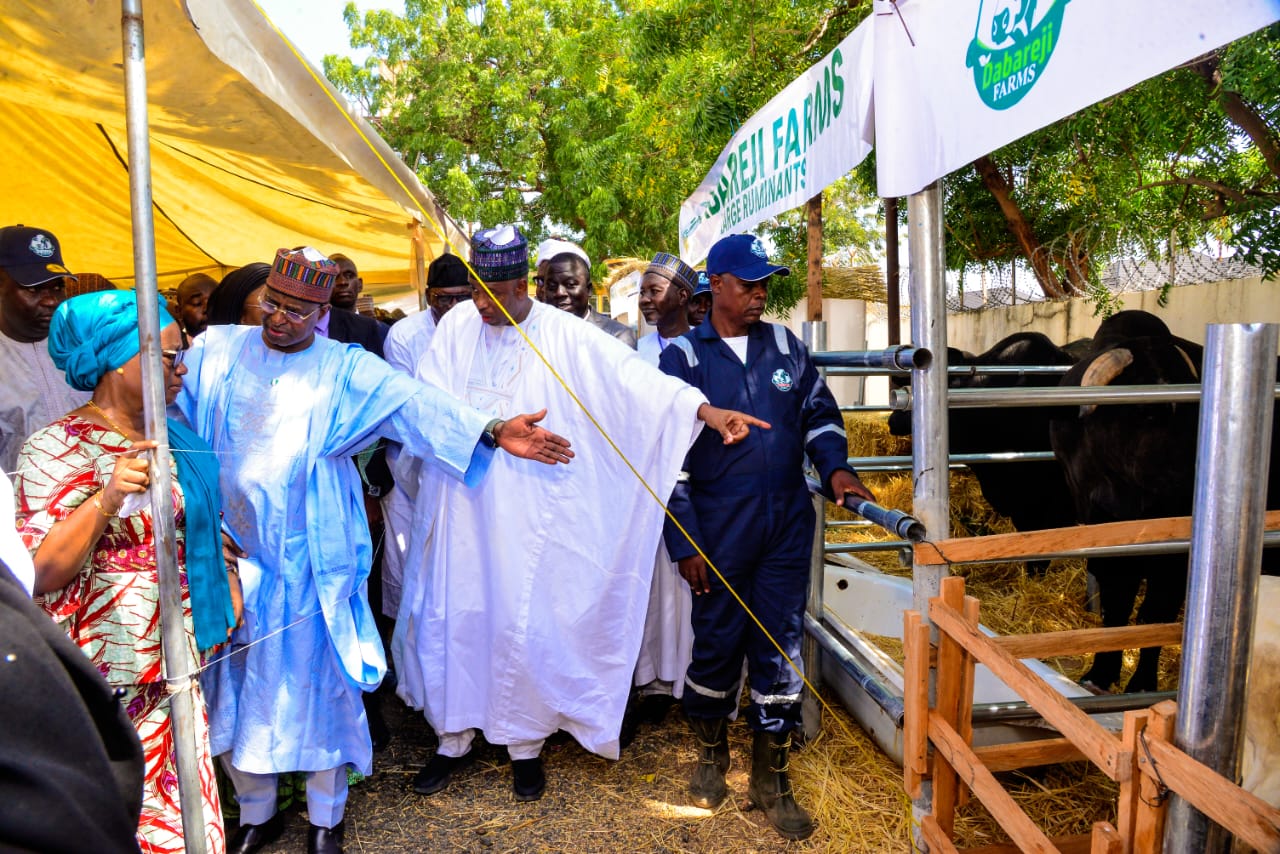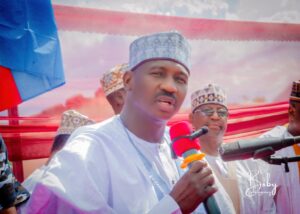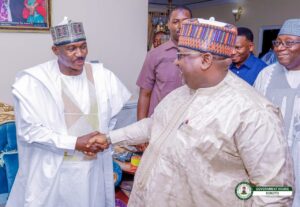Chidimma Uchegbu -Abuja
The Federal Government has reassured Nigerians that the Ministry of Livestock Development’s ongoing partnerships and investments are practical, results-driven efforts already taking shape, and will soon translate into meaningful, visible gains for citizens across the country.
Speaking at the maiden National Council on Livestock Development, which opened in Yola, Adamawa State on Monday, 24th November 2025, the Honourable Minister of Livestock Development, Idi Mukhtar Maiha, highlighted the Ministry’s progress over the past year.
He disclosed that several bilateral and private-sector engagements have matured into strong expressions of interest, with companies preparing targeted investments in key value chains including dairy, beef, fodder, small ruminants, animal breeding, poultry, piggery, and animal identification.
“We will see the physical manifestation of these engagements in a few months,” Mukhtar said, noting that development partners are already supporting dairy development, peacebuilding and climate-smart livestock production. This, he emphasised, offers real hope for pastoralists, farmers and rural households who have long awaited stability, better incomes, safer grazing environments and stronger animal health systems.
This was contained in the statement signed by the Assistant Chief Information Officer, Press and Public Relations Department, Ogochukwu Igboamalu.
Speaking further, the Minister explained that the Council was established to coordinate national strategies, strengthen collaboration, attract investment, and reposition the sector as a major driver of economic diversification, food security, rural development, and peacebuilding.
The Ministry, established exactly 16.months ago, has a mandate to transition the livestock industry from a traditional and conflict-prone practice into a modern, sustainable, and economically vibrant enterprise that would expand the livestock sector’s contribution to the economy from its current $32 billion to $74 billion by 2035, guided by the National Livestock Growth Acceleration Strategy (NL-GAS) and the National Livestock Master Plan.
Maiha urged stakeholders to work together to make the livestock sector a “beacon of prosperity, a source of national pride, shared progress, peace, and food security for all Nigerians.”
In her remarks, the Governor of Adamawa State, Rt. Hon. Ahmadu Umaru Fintiri, represented by the Deputy Governor, Prof. Kaletapwa George Farauta, described livestock as a historic pillar of the state’s economy. He recalled that Adamawa established a dedicated Ministry for Livestock Development over 20 years ago, long before most states and the Federal Government.
He appealed for financial support to scale up the state’s Pilot Ranch Project, implemented under the National Livestock Transformation Plan (NLTP), noting that Adamawa remains one of the leading states in demonstrating viable ranching models.
In his keynote address, the Special Adviser to the President on Livestock Reforms, Prof. Attahiru Jega, emphasised the need to convert conflict drivers into economic opportunities by reorganising farmer–pastoralist corridors into structured fodder production hubs that engage both youth farmers and herders.
Earlier in her welcome remarks, the Permanent Secretary, Dr. Chinyere Ijeoma Akujobi, said the inauguration of the council marks the beginning of a new era for Nigeria’s livestock sector, anchored on collaboration, innovation, and private-sector-led growth.
Goodwill messages were also delivered by the Chairman, Senate Committee on Livestock Development, Senator Musa Mustapha; Chairman, House Committee on Livestock, Hon. Tasir Olawale Raji; Adamawa State Commissioner for Livestock Development, Alhaji Tijani Maksha; and various development partners.
Following the opening session, the Honourable Minister, alongside the Deputy Governor of Adamawa State, Permanent Secretary and other dignitaries, was conducted to the exhibition area, where they viewed a wide variety of livestock products, innovations, and services on display.
The exhibition showcased key value chains, including dairy, beef, poultry, fodder, animal breeding, and veterinary services, highlighting the sector’s potential to drive economic growth, strengthen food security, and promote community development, as the maiden National Council on Livestock Development themed Livestock Rebirth: Accelerating Renewed Hope, concludes today.






Join the Conversation